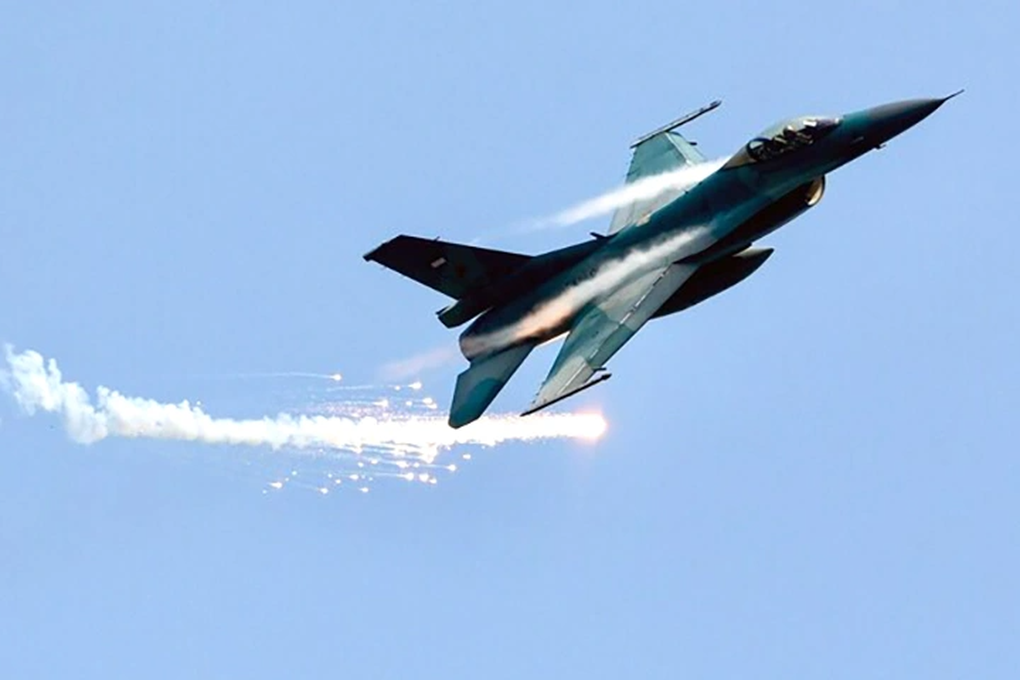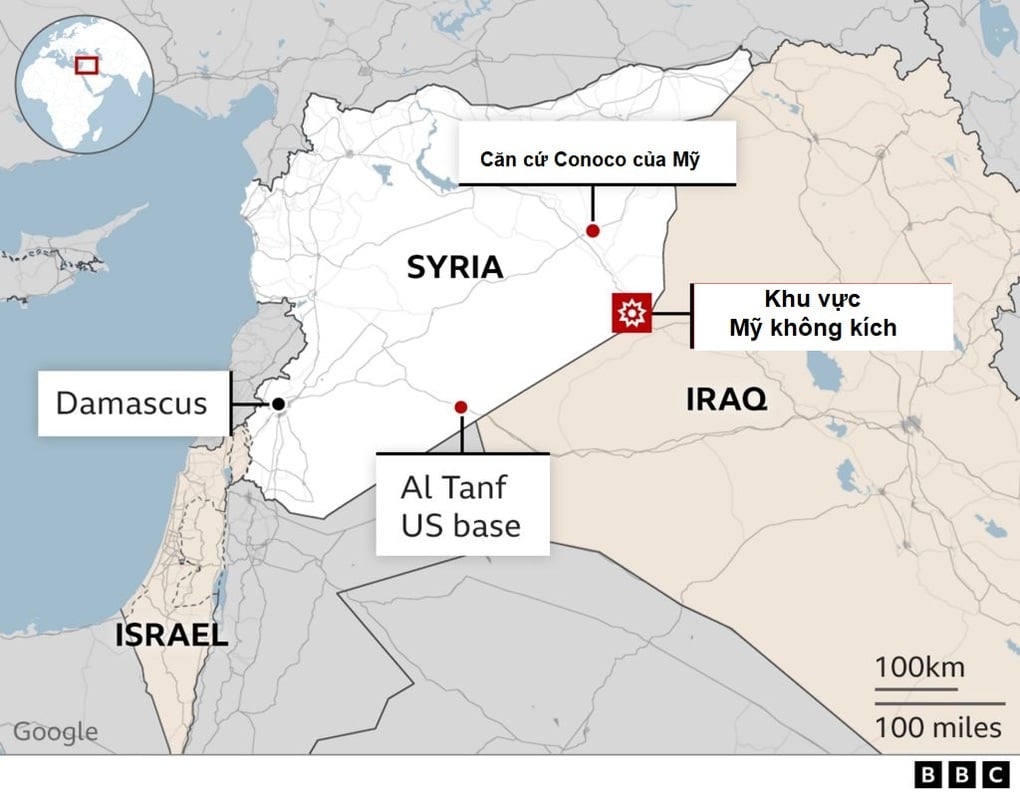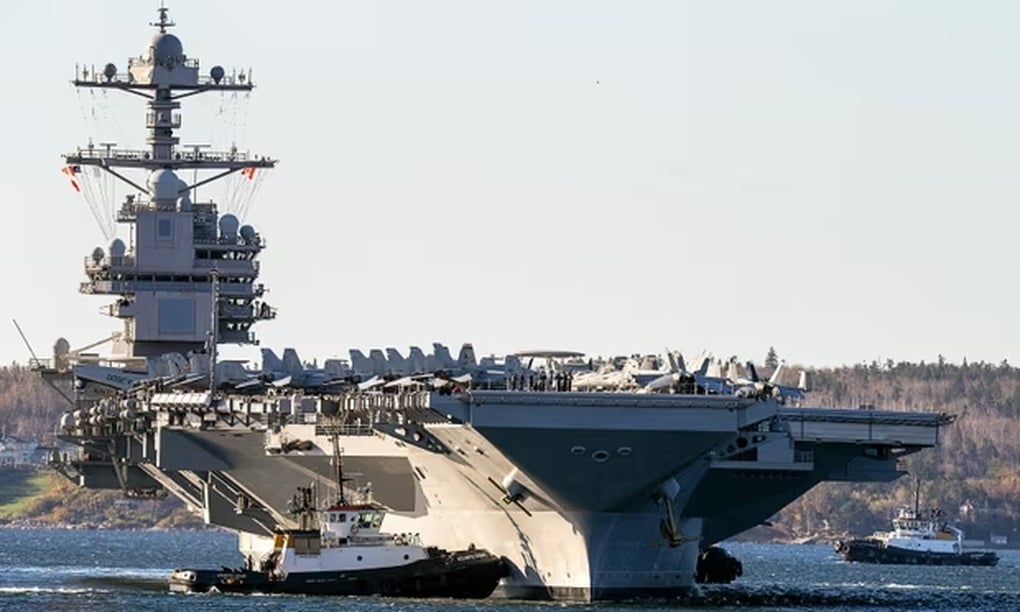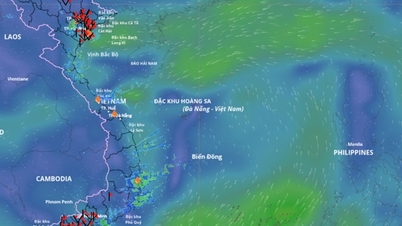
An American F-16 fighter jet (Photo: Getty).
Over the past 10 days, US military bases in eastern Syria and western Iraq have been repeatedly attacked by missiles and drones. To date, US forces there have been the target of at least 22 attacks.
The raids left more than 20 US service members lightly injured and one civilian contractor dead.
Earlier this week, President Joe Biden vowed to respond if such attacks continued. However, the attacks show no signs of stopping.
Washington decided to respond with airstrikes. US F-16 fighter jets destroyed a warehouse and a bunker containing weapons believed to be belonging to Iranian-backed forces in Syria. There is no information about casualties as a result of Washington's retaliation.

(Map: BBC)
Iran behind attacks on US military?
Military observers believe that the attacks on the US military could have been carried out by the Iraqi Islamic Resistance, an emerging force in the Middle East, created to help extremist armed groups in Syria and Iraq combine their strength and become a large military organization.
However, the above argument may not be entirely correct, and there are also opinions that this force was created to conceal the truly important role of the Iranian Islamic Revolutionary Guard Corps.
To date, there is no direct evidence, or at least no credible evidence, publicly available to prove a link between Iran and the recent attacks. However, the extremist groups that make up the Iraqi Islamic Resistance were all founded, funded, or supported by Tehran.
This does not prove that the armed group is always following Iran's orders, it only shows the close connection between the two sides. Therefore, they are considered part of the "axis of resistance" established by Tehran.
These groups are scattered across the Middle East, from Yemen to the Mediterranean. The network includes the elite Hezbollah in Lebanon, the Houthis in Yemen, and most recently, Hamas in the Gaza Strip.
US calculations after retaliatory airstrikes

The US aircraft carrier USS Gerald R Ford in the eastern Mediterranean (Photo: Getty).
The US has moved two aircraft carriers to the eastern Mediterranean and deployed additional military assets, especially missile defense systems, in the surrounding areas. According to the White House, these actions are aimed at deterring and limiting military intervention in the Middle East region, causing direct confrontation and escalating regional tensions.
In addition, this move is also to increase protection for about 900 US troops in Syria and 2,500 troops in Iraq. The main mission of the presence of these forces in the Middle East is to support the campaign against the self-proclaimed Islamic State (IS).
After the US attack, US Defense Secretary Lloyd Austin declared: "We cannot accept Iranian-backed attacks on US forces and these attacks must stop immediately. Iran wants to play the 'stone throw hide hand' game and continuously deny responsibility for these attacks but Washington will not ignore it."
"If attacks by Iranian proxy forces against US military personnel continue, we will not hesitate to take additional measures necessary to protect our people," the Pentagon chief warned.
The US's deterrent assertion and its air force capabilities will make Tehran have to consider carefully before deciding whether to let Hezbollah launch a major attack on Israel.
Will the conflict escalate?
Since tensions in the Middle East flared on October 7, this is the closest the US has come to using direct force. With the current chaos in the Gaza Strip and Israel’s planned retaliation campaign, analysts say the region will soon be nothing but gunpowder.
However, the US response to recent attacks has been more carefully calibrated, with the White House seen as genuinely attempting to deter rather than attack.
The US has made clear its concerns and affirmed that "the attacks were only for self-defense purposes, protecting US troops in Iraq and Syria".
It can be seen that this statement is sending the message "you take a step back, we will also give in".
"We continue to call on all parties to avoid actions that could escalate the conflict and become a regional conflict," the US defense secretary said.
Source


![[Photo] Opening of the World Cultural Festival in Hanoi](https://vphoto.vietnam.vn/thumb/1200x675/vietnam/resource/IMAGE/2025/10/10/1760113426728_ndo_br_lehoi-khaimac-jpg.webp)
![[Photo] Discover unique experiences at the first World Cultural Festival](https://vphoto.vietnam.vn/thumb/1200x675/vietnam/resource/IMAGE/2025/10/11/1760198064937_le-hoi-van-hoa-4199-3623-jpg.webp)



![[Photo] General Secretary attends the parade to celebrate the 80th anniversary of the founding of the Korean Workers' Party](https://vphoto.vietnam.vn/thumb/1200x675/vietnam/resource/IMAGE/2025/10/11/1760150039564_vna-potal-tong-bi-thu-du-le-duyet-binh-ky-niem-80-nam-thanh-lap-dang-lao-dong-trieu-tien-8331994-jpg.webp)





























![[Photo] Ho Chi Minh City is brilliant with flags and flowers on the eve of the 1st Party Congress, term 2025-2030](https://vphoto.vietnam.vn/thumb/1200x675/vietnam/resource/IMAGE/2025/10/10/1760102923219_ndo_br_thiet-ke-chua-co-ten-43-png.webp)































































Comment (0)